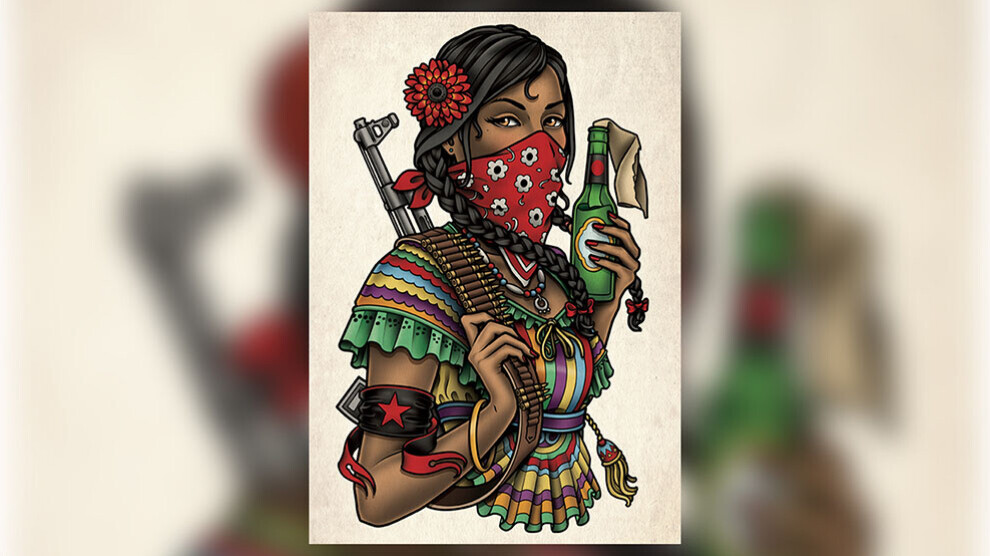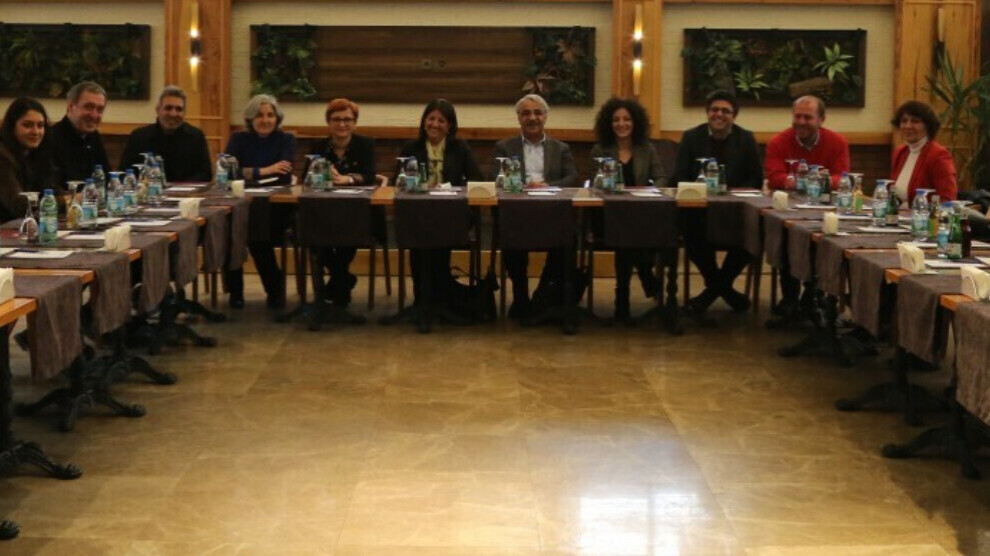By Eric Cheung, Gladys Tsai and Will Ripley, CNN
As a young man, Fred Chin spent years imprisoned on a craggy island off Taiwan.
© John Mees/CNN
Former political prison Fred Chin in a former prison at Jing-Mei White Terror
Memorial Park, where he was tortured by secret police in the 1970s.
Before he was sentenced, guards punched him, forced him to drink his own blood, and hung him upside down while they poured salty water into his mouth, he said.
Malaysian-born Chin had come to Taiwan to study at university in 1971, but had attracted the attention of the island's secret police. He doesn't know why.
They accused him of bombing a US government office in Taiwan the year before and working as a communist spy to overthrow the government in Taipei. There was no evidence, according to Chin, so secret police tortured him until he confessed to the crimes and imprisoned him for 12 years.
"They treated us like animals and didn't respect our dignity," said Chin, now 72. "They wanted me to admit that the explosion was done by me."

© John Mees/CNN Former political prison Fred Chin in a former prison at Jing-Mei White Terror Memorial Park, where he was tortured by secret police in the 1970s.
Chin was one of up to 200,000 people imprisoned during what became known as Taiwan's "white terror," a four-decade crackdown on political dissent imposed by an authoritarian regime between 1947 and 1987, according to Taiwan government estimates. Both political activists and apolitical people like Chin were caught up in the crackdown.
Until martial law lifted in 1987, the "white terror" events were considered a taboo subject.
Since 1995, the "white terror" has been commemorated each year on February 28, the date the government violently suppressed a 1947 uprising in the capital Taipei, considered to be the start of the crackdown. The date is also shorthand for its popular name -- the 228 incident.
The Taiwan government estimates that between 18,000 and 28,000 died during the uprising, while another 10,000 died in the subsequent four decades.
As Taiwan marks 75 years since the event, interest in the island's painful journey to democracy is growing -- as are fears that it could be taken away.

© John Mees/CNN Hundreds of unwanted statues of former president Chiang Kai-shek were moved to a park in Taoyuan city, as Taiwan reflects on his oppressive role during the "white terror" period.
Experts have warned that Beijing could be taking notes from Russia's invasion of Ukraine for a similar move towards Taiwan. Tensions between mainland China and Taiwan have risen significantly in the last few years -- Beijing claims self-governed Taiwan as part of its territory and has refused to rule out the use of military force.
© Gladys Tsai/CNN
Taiwan's former vice president Annette Lu spent more than five years in prison.
Activists and onlookers say the "white terror" period only highlights how difficult it has been to win democracy on the island -- and how much Taiwan potentially stands to lose.
A long fight for freedom
Taiwan, an island off the southeastern coast of mainland China and home to 24 million people, has had a long history of being governed by overseas powers.
For five decades, Taiwan was under the control of Japanese colonial rulers. But in 1945, after Japan's defeat in WWII, the island was handed to China's then-ruling Nationalist Party -- or Kuomintang.
Less than two years later, rising tensions between local Taiwanese and their rulers from mainland China erupted into the 228 incident, said Wu Jieh-min, a political sociology professor at Taiwan's Academia Sinica.
© Chiang Ying-ying/AP
Annette Lu in 2007, in Taipei, Taiwan.
On February 27, 1947, Taipei police hit a contraband cigarette seller in the head while confiscating her wares. When bystanders came to her defense, police fired and killed one of them.
The bystander's death sparked protests which evolved into sometimes violent riots, with demonstrators expanding their complaints to include growing inflation, corruption and conflicts between locals and mainland Chinese officials.
Facing defeat in a civil war in mainland China, Kuomintang leader Chiang Kai-shek retreated to Taiwan in 1949 and imposed martial law which lasted for 38 years -- one of the world's longest periods of martial law.
Nevertheless, activists continued to fight for democracy.
In December 1979, pro-democracy activist Annette Lu stood in front of a crowd of about 80,000 people at a human rights parade in Kaohsiung city.
She hadn't planned to speak, but as she criticized the Kuomintang government for denying freedom to the Taiwanese people, she remembers the crowd falling silent. Some had tears in their eyes, she said.
Suddenly, she saw military troops and police fire tear gas into the crowd. She was arrested along with other activist leaders and sentenced to 12 years in prison for sedition, during which time she says she wrote a novel on toilet paper. Ultimately she was released after five and a half years.
In 1987, martial law was lifted, and it was only in 1996 that Taiwan held its first direct Presidential election. In Taiwan's second-ever presidential election, Lu -- who had once been locked up for her political beliefs -- become the island's first female vice president.

© Julian Wilson/AP
President Chiang Kai-shek in Taipei in 1956.
"Once I joined the opposition movement, I knew sooner or later I would be jailed," she added. "I told the crowd we had to fight together...The message landed me in prison, but so many people (were) inspired by me."
Taiwanese identity
Although the events of "white terror" took place decades ago, this period of history is gaining prominence in Taiwan.
"Among the younger generation, there has been heightened awareness about white terror and our history of democratization in recent years," sociology professor Wu said. "New creations of literature and artwork on this topic are evidence that more people are paying attention."
Earlier this month, Taiwanese indie rock band Sorry Youth invited a victim to appear in a music video filmed at a former detention center. In 2019, Taiwanese horror film "Detention," set during the "white terror" period, was a hit at the box office, and won numerous awards at Taipei's Golden Horse Award -- often dubbed the "Chinese-language Oscars."
And in 2018, President Tsai Ing-wen -- only the second-ever Taiwanese president not affiliated with the Kuomintang -- set up a transitional justice committee to review injustices committed during its authoritarian era. The committee officially exonerated former prisoners like Chin and Lu and offered compensation.

© Gladys Tsai/CNN
A memorial wall inside a former political prison on Green Island, Taiwan, bears the names of thousands of prisoners sentenced during the "white terror" period.
According to Wu, the history of political suppression has played an important part in shaping a unique identity among the Taiwanese people. "Taiwan now has a shared history and identity. For many, human rights and democracy are very important," he said.
Discussions about the "white terror" period -- and the importance of democracy -- have only grown in recent years as Beijing has piled military, economic and diplomatic pressure on Taiwan to achieve its longterm goal of "reunification" with the island. China's ruling Communist Party views Taiwan as an inseparable part of its territory, despite having never controlled it.
Some politicians and analysts have raised concerns that Beijing may be watching Russia's invasion of Ukraine with an eye on Taiwan.
Last week, British Prime Minister Boris Johnson said "echoes" of what happens in Ukraine "will be heard in Taiwan," while US Secretary of State Antony Blinken also said "others are watching" the Western response to Russia, "even if it's half a world away from Europe."
For its part, China says Taiwan is not Ukraine, claiming the island has belonged to China "since ancient times."
"China's sovereignty and territory have never been divided and cannot be divided. This is the status quo of the Taiwan question," Foreign Ministry spokesperson Hua Chunying said last week when asked about comparisons made between Taiwan and Ukraine.
But while experts also pointed out differences between the geopolitical situations in Ukraine and Taiwan, the island's leaders put its military on "a high level of vigilance."
Last year China sent hundreds of warplanes into the skies above waters southwest of the island, prompting the island to issue radio warnings and deploy air defense missile systems to monitor the activities. Taiwan's Defense Minister, retired general Chiu Kuo-cheng, made a dire prediction -- by 2025, China could be able to mount a "full-scale" invasion of Taiwan.
Beijing has previously criticized Taiwan's government for using the 228 incident as a tool to promote the island's separation from mainland China.
"If China invades or takes Taiwan in the foreseeable future, I'm very worried that the 228 tragedy would happen again," Wu said.
"The tragedy of the past is why many people are scared about establishing political ties with China again," he said. "For Taiwanese people, many want to avoid this tragedy from happening again. And this is the reason why many people do not want to see Taiwan falling into the hands of a foreign regime again."
The past as a warning
Victims of the "white terror" continue to process what happened to them -- but they also hope their experiences serve as a lesson to younger generations.
Chin, who became a Taiwanese citizen after his time in prison, now spends time reminding the younger generation of Taiwan's painful history by offering guided tours at a memorial park.
"We didn't want these kinds of things to happen again, to anyone else," he said.
Another white terror victim, Chen Wu-jen, was imprisoned for two years from 1969 after he scribbled words opposing the ruling Kuomintang on the back of an aptitude test during his military conscription. He was 20.
Chen, now 73, went on to become an artist. Last year he became the first "white terror" victim to hold an exhibition at Chiang Kai-shek Memorial Hall in Taipei, a building commemorating the leader who once oppressed him. The exhibition included his oil paintings and woodcarvings showing what it was like to be persecuted, and an area that invited visitors to reflect how Taiwan should correct its past mistakes and achieve transitional justice.
He said it is important for the younger generation to understand the sacrifices many people made for democracy. "The freedom we enjoy today did not fall from the sky, and only came about because many people worked hard for it," he added.
Lu said this message is especially important to present-day Taiwan.
"We have to insist our principles -- democracy, freedom and the dignity -- are what our people desire for," said Lu, now 77.
"Our future has always been decided by outsiders," she said. "We really want to be ourselves."





 © Security Service of Ukraine/Telegram A series of text messages allegedly written by a Russian soldier before he was killed in combat were published by the Security Service of Ukraine. The texts say that civilians were “hit” in the Russian invasion of Ukraine.
© Security Service of Ukraine/Telegram A series of text messages allegedly written by a Russian soldier before he was killed in combat were published by the Security Service of Ukraine. The texts say that civilians were “hit” in the Russian invasion of Ukraine.















